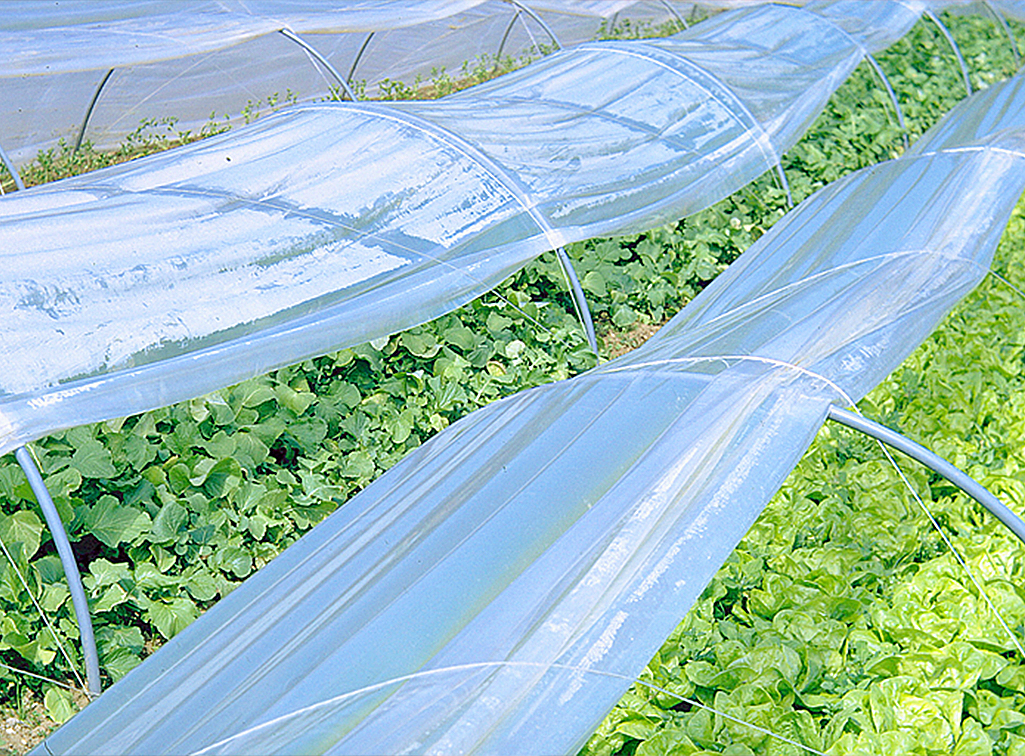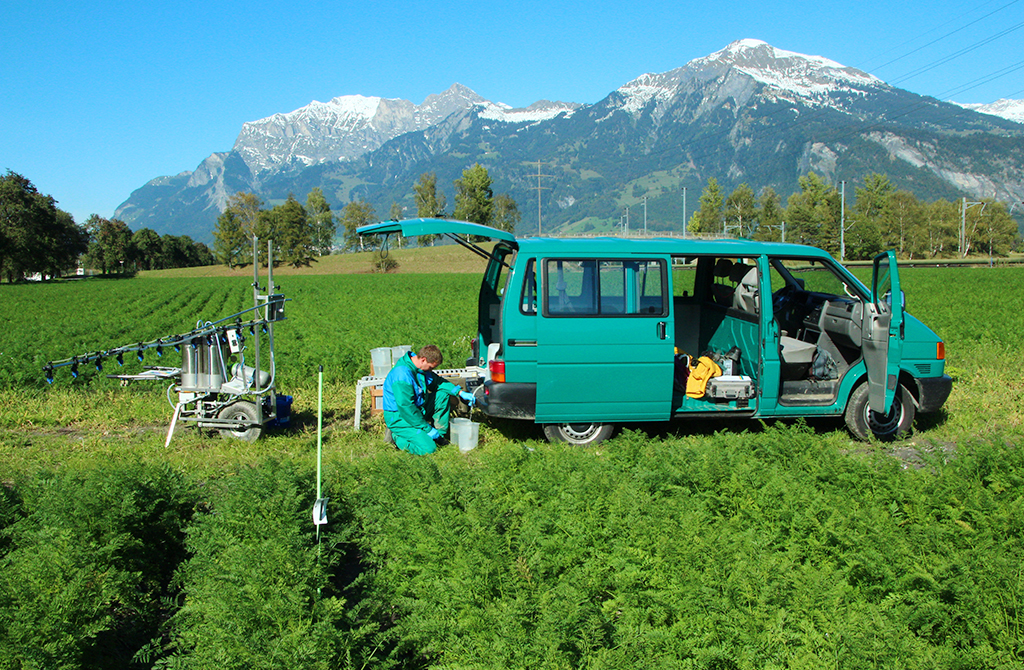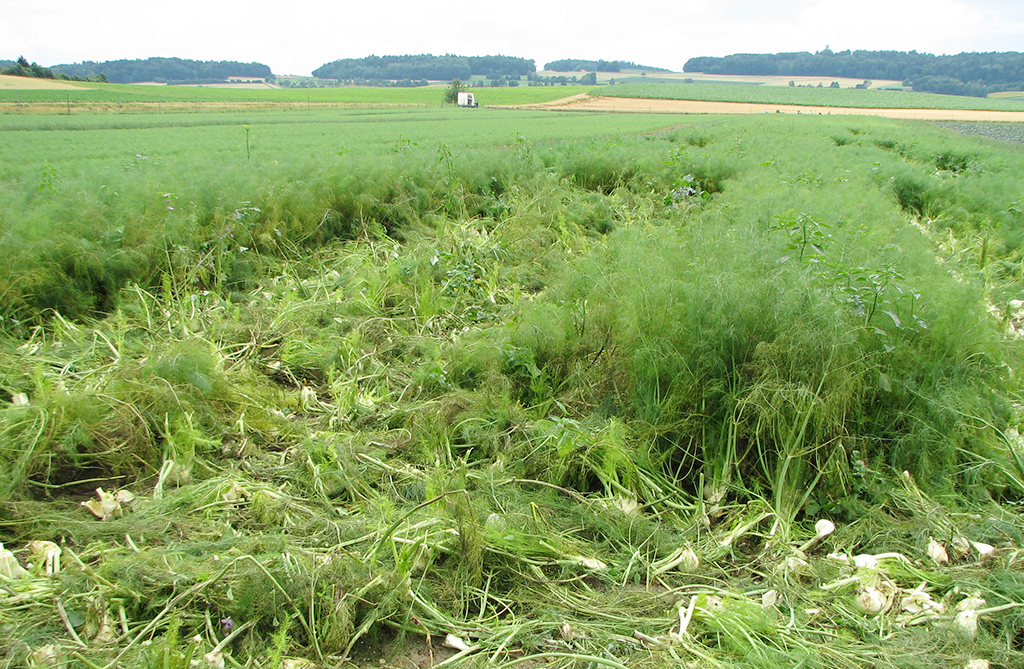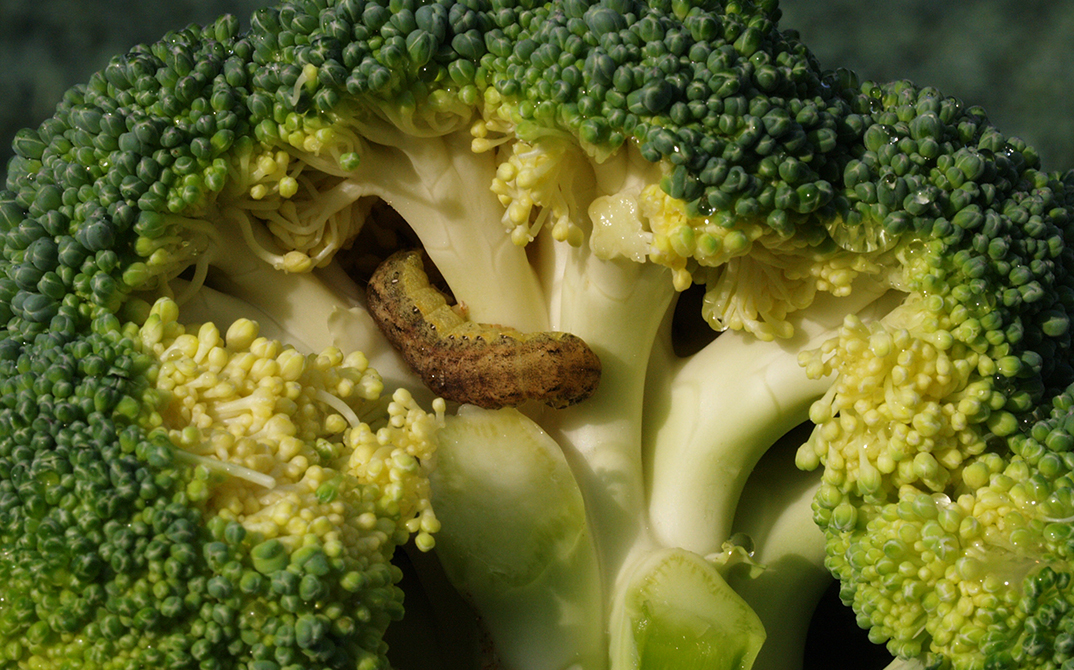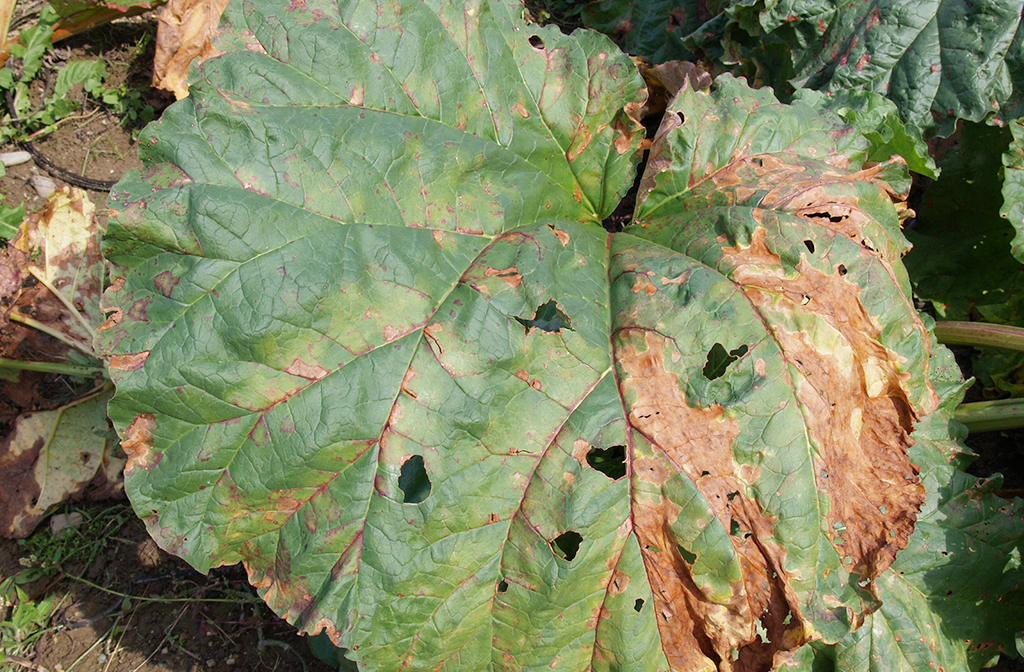Here in Switzerland, a number of fruit and vegetable crops are grown on relatively low acreages. In such cases, an expensive authorisation process is often not worthwhile for the Swiss companies manufacturing the plant-protection products (PPP) for which approval is sought. Nevertheless, Swiss farmers are reliant on effective and environmentally friendly PPP’s. This is where the Federal Government lends a helping hand. Experts from Agroscope and other federal agencies gather the information needed for the evaluation of the PPP’s. Based on these studies, the Swiss Federal Office for Agriculture (FOAG) decides on authorisation.
Fruits and vegetables of impeccable quality and free from pests and symptoms of disease – that’s exactly what Swiss consumers want. Farmers must take measures in order to guarantee this quality. Rain roofs preventively protect berries and cherries from rain, and hence from fungal infestation. Nets keep cherry fruit flies and Drosophila suzukii away from the fruits. Cultivating carrots on plots exposed to wind reduces carrot-fly attack. These are just a few examples of measures that do not make use of PPP’s. But currently demanded quantity and quality levels in both Integrated Production and organic farming could not be achieved without any use of PPP’s.
Closing up the gaps
To help farmers protect the environment and avoid residues on produce when using plant-protection products, PPP’s may only be used after a comprehensive authorisation process. During this process, they are thoroughly assessed, both as to their suitability for protecting crops and in terms of their safety for the environment, users and consumers. Companies manufacturing these products must finance the studies on which market approval is based themselves. And therein lies the rub: The financial outlay for these studies often exceeds expected revenue from the sale of the PPP’s. It is therefore hardly surprising that the industry is hesitant to lodge requests for authorisation in the case of low-acreage crops, the so-called minor uses.
The figures speak for themselves: for instance, in 2014 rocket was cultivated on a total of 81 ha in Switzerland. Depending on the fungicide used, the cost of treatment for downy mildew on this acreage is around CHF 8000 per annum. From the industry’s point of view, no study is worthwhile at such a low turnover. For over thirty additional vegetable crops, including aubergine, sugar peas, pumpkin, parsley, radishes, chives and sweetcorn, the low acreages under cultivation mean that few requests for authorisation of PPP’s have been submitted. Here, federally funded agricultural research must spring into action to enable Swiss farmers to legally purchase and safely use the urgently needed plant-protection products.
Simplified authorisation
The law provides for a simplified authorisation process where PPP’s for minor uses are concerned, provided that safety for humans and the environment is proven for their proposed use. Here, Agroscope experts carry out valuable detective work by first of all clarifying which of the not-yet-authorised plant-protection products stand the best chances of authorisation. In this context, it often pays to look over the border, where approval may already have been granted for a product. Agroscope often additionally conducts its own trials in order to test the efficacy of potentially usable products under Swiss climatic and growing conditions. When prospects of success are good, the vegetable-production sector is prepared to finance the necessary analyses of potential residues on the harvested crop, With this support, companies can file an application for authorisation with the Federal Office for Agriculture (FOAG) at a reasonable cost.
Prioritising cases
In 2014, Agroscope handled the fifty most important instances of the many plant-protection gaps in vegetable production. The prioritisation of these cases was undertaken by the industry. Agroscope has already managed to bridge thirteen gaps, and in ten further cases has helped the PPP firms in question submit a request for approval with the FOAG. Frequently, a new approval is preceded by a several-year processing period, as in the case of mites which have been occurring in greater numbers in the chicory forcing sheds for several years now. These mites on the ready-for-sale chicory crowns are perceived as objectionable by consumers. Together with the responsible regional agencies for vegetable production, Agroscope has carried out studies on the efficacy and residue situation of various PPP’s. Based on these results, a first product which is also permissible for use in organic farming was approved in 2014 for use at the onset of the forcing of the chicory roots.
In vegetable production, previously unknown fungal diseases also recur time and again, such as a downy mildew fungus that can infect rhubarb so seriously after harvest that a large proportion of the leaf surface dies prematurely. Meanwhile, a control strategy has been developed and residue studies have been conducted in trials. The latter were financed by the Association of Swiss Vegetable Producers (VSGP) from a fund specifically increased for residue analyses. This means that companies have been able to submit approval applications for fungicides that contribute substantially to the mitigation of downy mildew in rhubarb.
Fruit and vegetables of impeccable quality, free from pests and symptoms of disease – thanks to the approach outlined above, that is exactly what Swiss consumers are getting on their plates.


